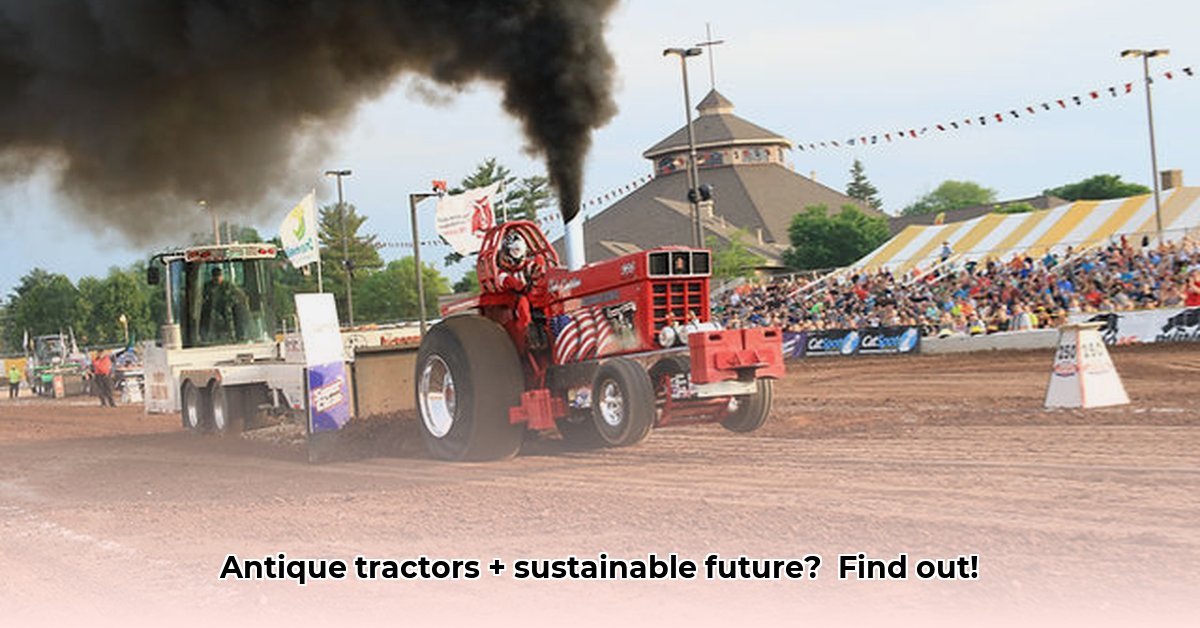
Tractor Pulls This Weekend: A Blend of Tradition and Sustainability
This weekend, the Oak Grove Equine Center hosts an antique tractor pull—a captivating blend of roaring engines, friendly competition, and a surprising conversation about sustainable agriculture. It's more than just a show; it's a community gathering celebrating farming history and raising questions about the environmental impact of cherished traditions. But can this nostalgic event truly contribute to a sustainable future? Let's explore.
For more information on large-scale tractor pulls, visit this website.
A Community Celebration Rooted in the Past
The atmosphere at the tractor pull is electrifying. A palpable buzz of excitement and friendly rivalry fills the air. Participants, often neighbors, share knowledge and skills passed down through generations fostering strong community bonds. This isn't just a competition; it's a powerful social event, often raising money for local charities, strengthening community ties, and preserving agricultural heritage. This sense of community and collaboration—isn't this at the heart of building a sustainable future? Does the strong sense of community building outweigh other concerns?
Giving Old Machines a New Purpose: The Circular Economy in Action
Many tractors are meticulously restored antiques, representing remarkable engineering and durability. Instead of being discarded, they've been given a second life, showcasing the principles of the circular economy (reusing materials to prevent waste). This resourcefulness challenges us to consider whether modern agricultural practices can learn from past methods. But, is this repurposing enough to compensate for the environmental impact of these events?
The Environmental Impact: Addressing the Knowledge Gap
While the community and heritage aspects are positive, the environmental consequences require careful consideration. Currently, crucial data is lacking regarding fuel efficiency and emissions of these antique tractors. What is the precise fuel consumption? What are the air quality impacts? How significant is soil compaction during pulls? These questions demand further research. The lack of readily available data prevents a definitive assessment of the environmental impact.
A Call for Research and Responsible Practices
To fully understand the environmental footprint of antique tractor pulls, a multi-faceted research approach is necessary:
Measure Fuel Consumption and Emissions: Conduct precise measurements of fuel consumption and emissions from different tractor models under varying conditions.
Analyze Soil Compaction: Assess the long-term effects of ground compaction on soil health using pre- and post-event soil analysis and comparison to untreated control fields.
Conduct a Comprehensive Economic Assessment: Evaluate the economic benefits of these events, considering tourism, local business revenue, and community engagement.
Perform a Life Cycle Assessment: Analyze the complete lifespan of the antique tractors from manufacturing to disposal, accounting for both initial and current use.
Only through thorough investigation will we gain a comprehensive understanding, enabling informed decisions for minimizing environmental impact without compromising the rich heritage these events represent.
The Future of Tractor Pulls: Tradition and Sustainability in Harmony?
Antique tractor pulls offer a unique blend of community, history, and resourcefulness. However, a complete assessment of its long-term sustainability depends on filling the current knowledge gap regarding environmental impact. Through collaborative research and mindful practices, these beloved events can continue to thrive while minimizing their environmental footprint. The future lies in finding the right balance.